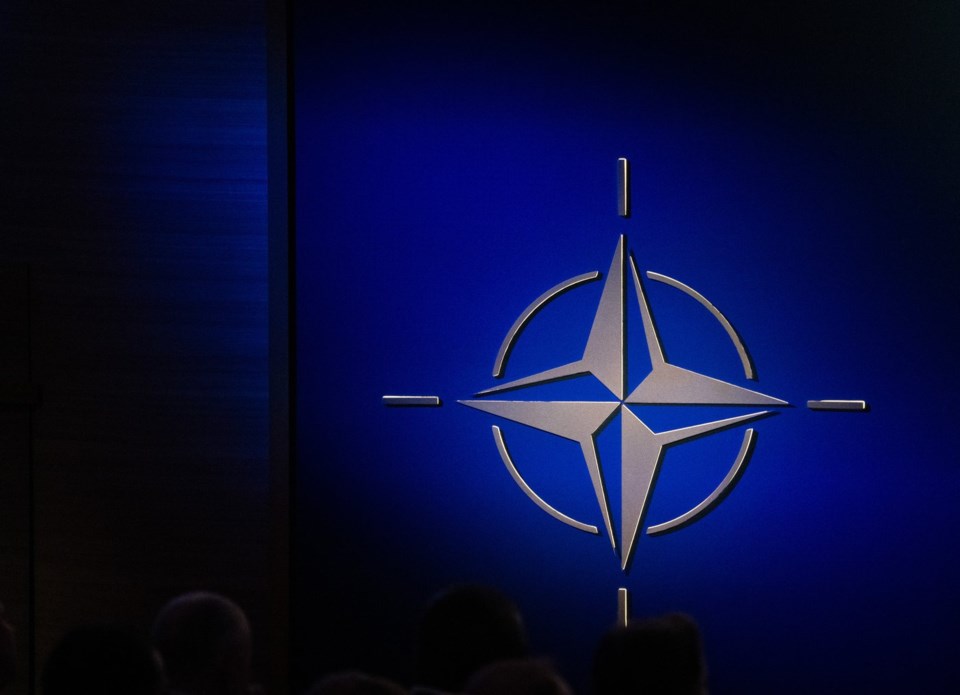OTTAWA — A resurgent North Atlantic Treaty Organization should play a leading role in fighting the growing aggression of authoritarian states in the online battlespace, says a new report from civil society groups.
The report, released by the Montreal Institute for Global Security and Konrad-Adenauer-Stiftung Canada, warns that China, Russia, Iran and North Korea are working to expand their strategic influence and reshape global norms.
Their shared objectives include undermining U.S. leadership, discrediting western alliances — NATO in particular — and framing the West as hypocritical and neocolonial, the report says.
"Recognizing the scope of the threat is no longer enough," says the report Wired for War: How Authoritarian States are Weaponizing AI Against the West. "The authoritarian playbook is clear, and so too must be the democratic response."
Autocratic states are asserting power in the information domain by using a mix of overt state-controlled media and covert or unaffiliated channels to spread disinformation, the report's authors say.
Emerging technologies — particularly artificial intelligence, deepfakes, bots and algorithmic amplification — are accelerating the scope and scale of foreign information manipulation and interference operations, they say.
"These operations are designed to appear organic and target diverse audiences across platforms such as X, Facebook, Telegram, YouTube, and TikTok," the report says.
"Techniques include using videos, articles, memes, and AI-generated content, often masked through 'information laundering' to obscure their origins."
While the United States’ current political commitment to NATO is fluctuating, other member states are stepping up by increasing their defence spending to 3.5 per cent of gross domestic product, the report notes.
"These new resources must not be directed solely at tanks, missiles, drones and troops. They must also be invested in the fight to secure our information environments, counter digital authoritarianism, and build digital resilience," it says.
"NATO remains the most powerful collective instrument available to liberal democracies. It is time to wield that instrument with clarity and courage. Information warfare is warfare — our response must reflect that truth. Democratic governments must now act with urgency and strategic intent."
NATO already has established an overarching strategy on emerging and disruptive technologies, with the aim of minimizing rogue interference and protecting against the adversarial use of AI, the report adds.
But it also cautions the alliance must not be left to wage this fight alone.
Western democracies should lead in confronting the information threat "with urgency and resolve," the report says.
It underscores the central role the United States has long played in countering information warfare and advancing democratic and digital resilience globally.
"Through sustained funding, institutional leadership, and diplomatic co-ordination, it helped anchor a collective response to authoritarian influence operations," the report says.
"Today, however, that leadership has largely receded. Key American programs and institutions dedicated to this fight have been defunded, dismantled, or deprioritized, leaving a dangerous vacuum."
In this context, western democracies and their allies must step up, forge stronger partnerships and invest in shared strategic capacity to confront the growing threat, the authors argue.
"We have moved beyond a point where countering disinformation solely through content-level interventions like fact-checking is sufficient," the report says.
"Instead, the priority must shift to addressing the underlying structures and systems that enable the creation and spread of disinformation."
That work should include investing in news media, the authors say.
They point out that while authoritarian states like China, Russia and Iran are spending heavily on state-backed international media to influence audiences abroad, public broadcasters in democracies — such as Radio Free Europe, Voice of America and Radio Canada International — have endured significant funding cuts for years.
"The era of passive observation is over. If democracies are to withstand and ultimately overcome the growing axis of autocracy, they must meet this challenge with the seriousness, resources, and co-ordination it demands," the report says.
"The stakes are no less than the integrity of our institutions, the resilience of our alliances, and the survival of the democratic idea itself."
This report by The Canadian Press was first published Sept. 4, 2025.
Jim Bronskill, The Canadian Press



